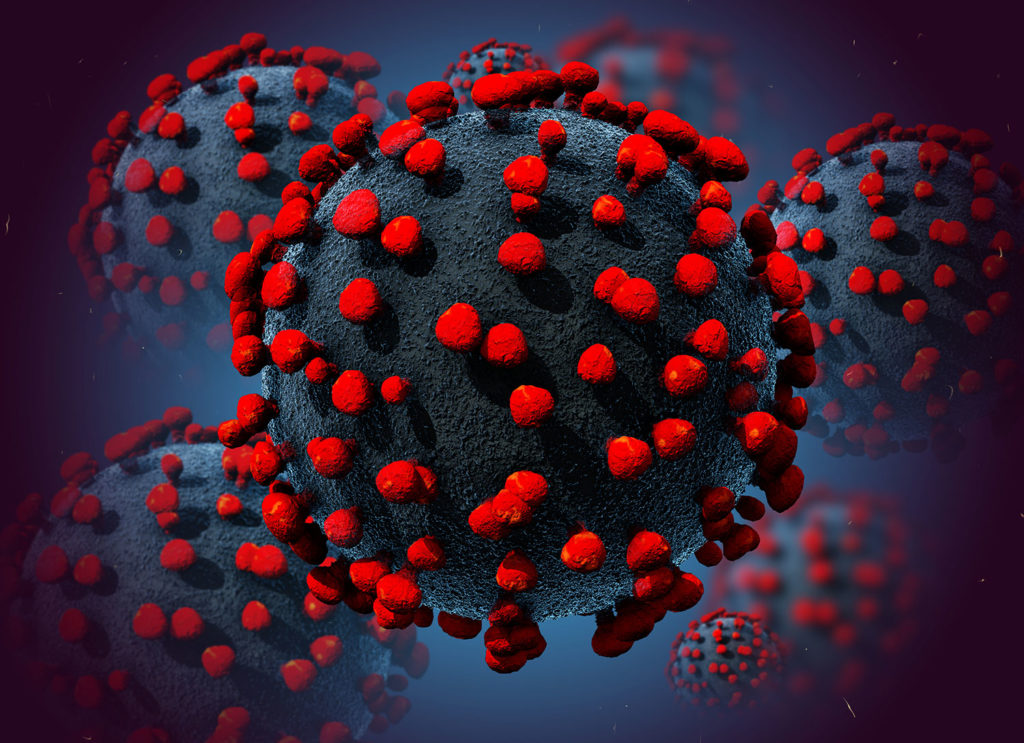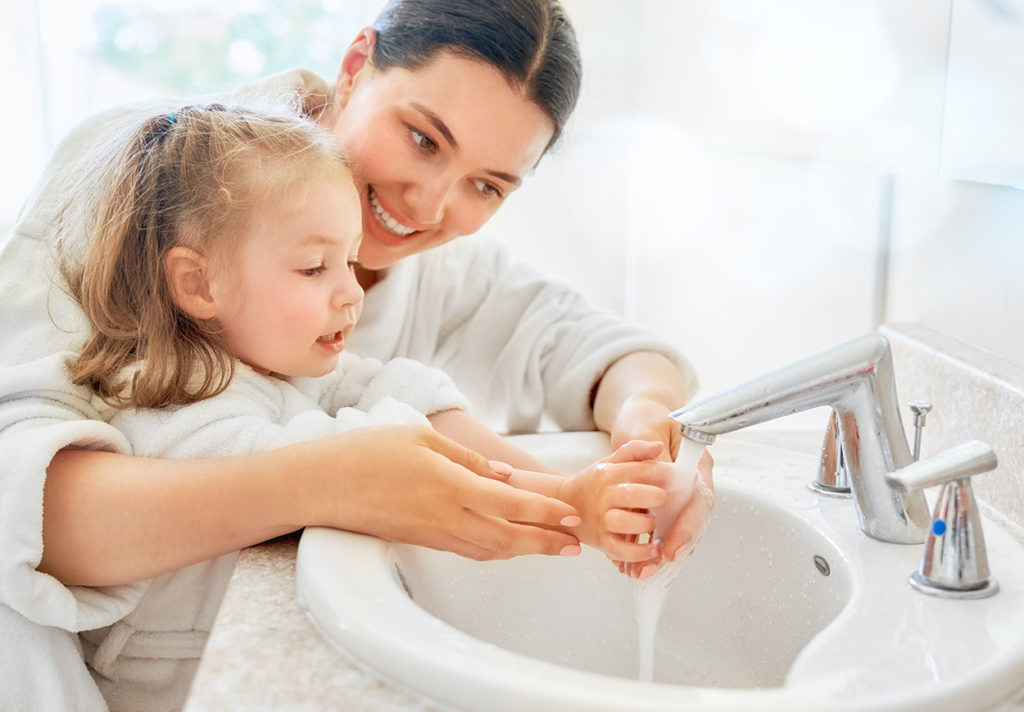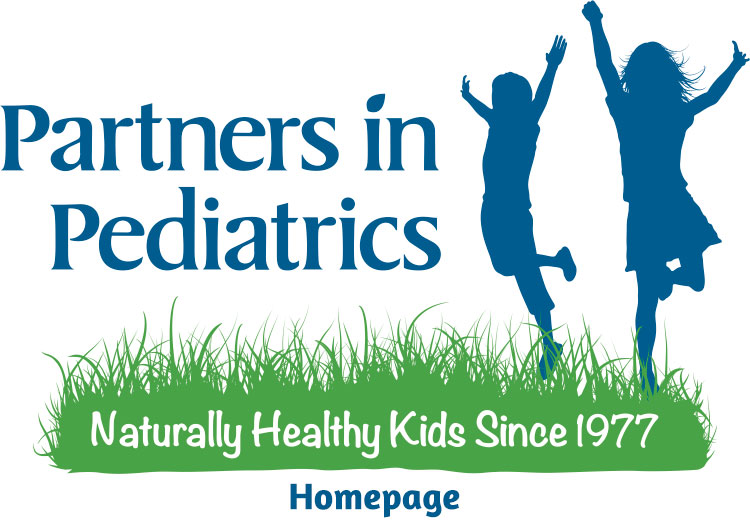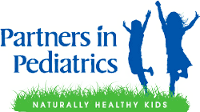Partners In Pediatrics is here to help support you and your family during this pandemic, even with all the closures. You can also call the Colorado Department of Public Health and Environment’s CO-HELP Coronavirus hotline at 303-389-1687 if you have any general questions. Keep scrolling for important information on the Coronavirus.
What’s the protocol for bringing my child in to PIP?
PIP is indeed an “essential business”, so it will remain open throughout the lockdown. As long as you have called PIP to clarify the type of visit/concern we can address for you, families like yours should absolutely come to PIP as planned. The American Academy of Pediatrics has advised that all children continue well-care visits during this crisis, and we are also able to see sick patients. Please don’t hesitate to get in touch with us to schedule a visit.
Are Well Care visits important or should I delay them?
Well Care visits are VERY important for your child’s health – and indeed for public health on the whole and they are SAFE here at PIP. We have implemented plenty of additional measures – including reserving mornings strictly for Well Care visits, regular temperature checks, mandatory masks, etc – to further ensure you and your child’s safety during the pandemic. To learn more about Well Care visits, check out our blog on the subject.
What will Partners In Pediatrics do during this time?
- Telemedicine for SSRI, ADHD, and other appropriate visits
- Change in office hours
- We will continue to screen by phone to be sure we are limiting risk to our patients and staff.
- We discourage “Walk-ins” who have not been pre-screened.
- Anyone with a fever/cough will be masked and roomed as quickly as possible.
- Children with highly contagious illnesses are checked out in the exam room and exit a back door, away from other families.
- If appropriate, we may need to consider providing phone/telehealth advice in some cases, to keep at risk patients from leaving the home.
- At PIP, we will stock supportive products like Reboost Immune, Reboost Cold & Flu, and other products that have been helpful in similar viral syndromes. You may refer to our Natural Healthy Kids handbook (now at Amazon and Kindle if you have misplaced your copy or if you need NHK in an “on line” version) for tips to handle your child’s symptoms.
- Even more increased cleaning (no more books in the room, bring your own entertainment)
- Well cares in the morning (only well children please, ill children or ill caregivers will be turned away in the morning to keep our patients safe)
- Carefully screened sick visits in the afternoon
What is “Novel Coronavirus 2019”?
Most types of coronaviruses that we have seen for decades are common, self-limiting infections in children, but this particular “novel” strain COVID-19, appears to be much more easily spread from person to person. Because it is a “new” strain there is not natural immunity in the populations to slow its spread. Also, COVID-19 often starts with mild symptoms, making it tough to identify in people with mild illness until it has already spread to others.
How dangerous is COVID-19?
So far, the fatality rate of COVID-19 seems low at ~ 2%, but higher than that of influenza (0.1%-0.2%). Death rates for MERS and EBOLA have been much higher. Most people with COVID-19 recover within a few days. So far, it appears that children have fared better than adults. The main concern is that with so many people at risk, there is the potential for MANY more cases, and thus many more deaths.
What are the symptoms?
Symptoms of COVID-19 can be as mild a runny nose, cough, slight fever. Some patients have more cough, aches and fever, but these appear to come on more gradually than they do with the Flu. This clinical picture of COVID-19 is similar to many of the winter viruses we see every day at PIP. Right now, the main screening risk to differentiate for risk of COVID-19 is a travel history from an area where COVID-19 is present.
So why worry?
In some people with COVID-19, instead of improving after a few days, they may progress to shortness of breath, worsening of cough, pneumonia, and in some cases, death. There is no medication to treat this virus, just supportive care. There is no vaccine yet, although clinical trials are underway at the National Institute of Health. (Reboost Immune, Reboost Cold & Flu, and other products have been helpful with similar viral syndromes and may help provide relief, but, to be clear, have not yet been studied with COVID-19.)

Is COVID-19 testing available?
A drive-up testing center is now located at Denver Coliseum (4600 Humboldt St.), and will continue to move around the Metro Area to strategic locations. Hundreds of tests have been conducted since the center first opened on Wednesday. If you plan on getting tested, you’ll need to bring a doctor’s note and ID in order to be tested. It has been recommended that you receive the note electronically (via email or fax) to limit unnecessary exposure. Please note that Partners In Pediatrics does NOT have the ability to test for COVID-19 at this time.
Should I or my child get tested?
There is not enough capacity to run all the tests that the public has requested, so at this time, testing is limited to those who meet specific risks, criteria and exposures. If your child has had direct exposure to a known COVID-19 test positive individual and has a fever and cough, please call PIP or the CO Dept of Public Health for guidance about testing. If you or your family members are experiencing a cough, fever, or flu-like symptoms but they can be managed at home, do not go to PIP, urgent care or emergency rooms at this time. Please “self-quarantine” at home.
What can I do to protect my family?
- Consider rescheduling any travel to countries where COVID-19 is active.
- Stay up to date with COVID-19 activity in the US, Colorado and our community.
- Be sure you and your family are already protected from illnesses we DO have the ability to prevent. Get your Flu shot, Tdap, and any other shots your family may be missing.
- Review good hand washing or gel cleanser use with your family, use refillable water bottles instead of water fountains, do not share drinks/utensils/saliva.
- Continue to make good nutrition, sleep and healthy habits a priority.
- Plan to have enough food/medication/supplies at home in case you need to work/stay at home for a few days.
- Check with your work to see what plans they may have should remote work be needed.
How can I talk to my kids about COVID-19?
Since this is a troubling phenomenon that is receiving tremendous amounts of international attention, your children are bound to have been exposed to plenty of talk of the Coronavirus. As with anything frightening that may even be affecting the lives of those around them, it is important to be mindful of how we talk to kids about it so we don’t cause them unnecessary stress or fear. Here are a few basic tips (thanks to Children’s Hospital Colorado for inspiration):
- Set a positive example. As you know, children imitate their parents in many ways. If you are feeling anxious and showing it, your children are more likely to feel anxious, too. If you can remain calm and even-handed about things, your children are more likely to mirror your calm.
- Be open. Being open to discussing something frightening and sensitive can help make the subject feel safer by taking away stigma. Talking openly and honestly about the risks – but also the steps you and your family are taking and can take to reduce the risks – can only help matters.
- Limit media exposure. As feelings of fear and panic about COVID-19 rise, the media is bound to reflect this. Combine that with how sensitive children are, and you can have a lot of needless worry. Limiting children’s exposure to media can help prevent their imaginations from running away with fear.
- Be educated and ready to answer questions. Kids can be very inquisitive, and having educated answers to the best of your ability can help calm them. Of course, there are certain questions here to which we have no answers, so being honest about that, too, can help set a good example about remaining calm even in the face of uncertainty.
What are simple things I can do to help out?
As this virus spreads through our community it is vitally important that we all limit our travel, consider avoiding crowded venues, practice the best hand washing and personal hygiene habits and teach/remind our children to do the same. The CDC has put together an excellent guide with advice on how to help your community amid this crisis.

What about my child’s school or daycare provider?
With the statewide lockdown in effect, daycare and schools are closed for the time being. Governor Polis has closed down Colorado schools until at least April 17th.
Reliable Sources for Coronavirus Information
If you have more questions or concerns about the novel 2019 coronavirus, please visit RELIABLE sites (unfortunately, there can be a lot of bad info out there from less-than-reliable sources). Here are a few that we recommend.
- Centers for Disease Control and Prevention. The CDC is the leading national public health institute in the United States and is a federal agency. Their webpage dedicated solely to the Coronavirus is an extremely helpful and comprehensive source for up-to-date information on COVID-19.
- Children’s Hospital Colorado. If you’re looking for a more local source that is also parent-centric, we highly recommend you check out Children’s Colorado’s COVID-19 resource page.
- Colorado Department of Public Health and Environment. This is a reliable, local source of information, and the home to CO-HELP, Colorado’s Coronavirus call line. If you have general questions about COVID-19, please call them at 303-389-1687.



Leave a Reply